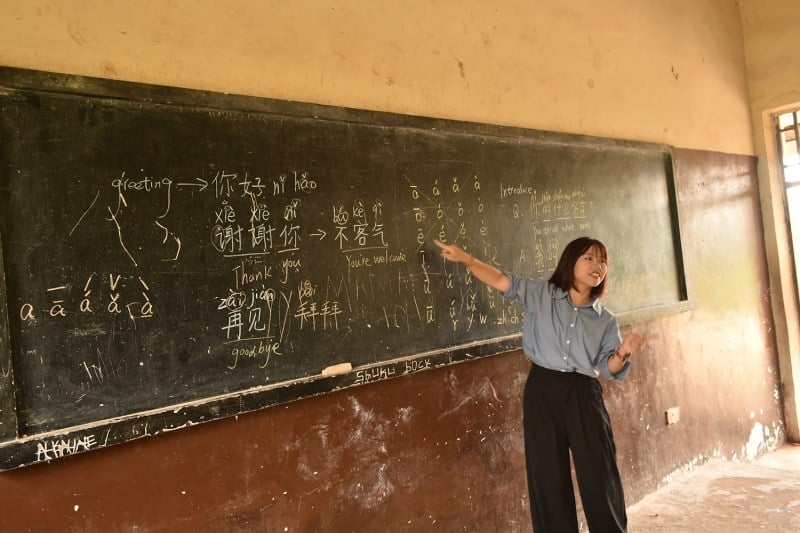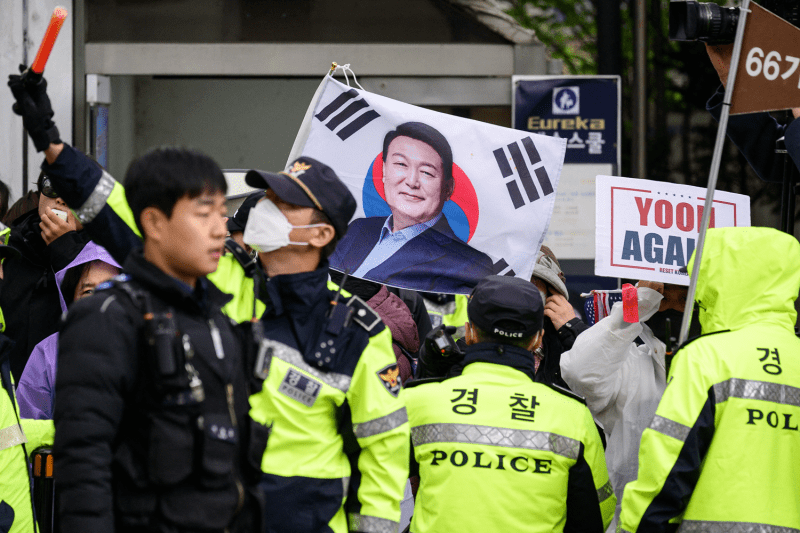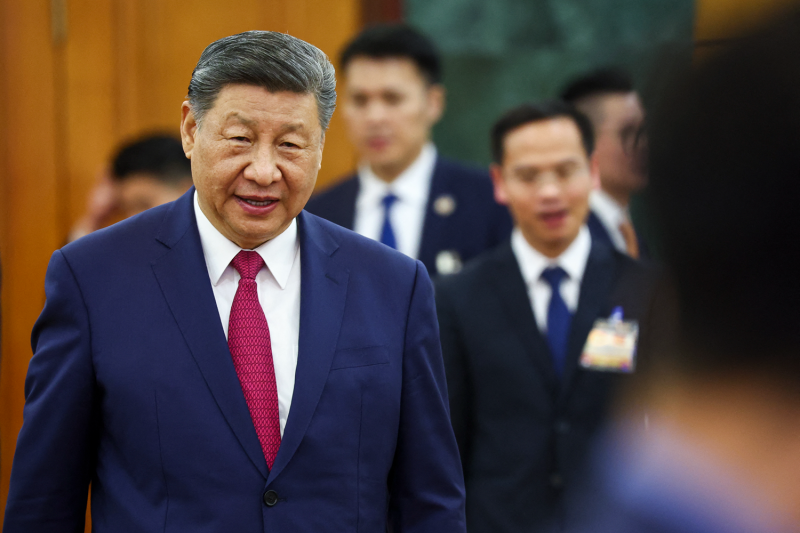The Fight Over Language, From Haiti to Kyrgyzstan

The Fight Over Language, From Haiti to Kyrgyzstan
Reads on one of the most powerful tools of imperialism.
Mandarin language teacher Liu Mei gestures at the blackboard at the Confucius Institute in Sierra Leone during a class for students in Freetown on Oct. 15, 2024. Saidu Bah/AFP via Getty Images
In the coming weeks, Flash Points will have a new name: The Reading List. Expect continued curated guides to the best articles in the magazine. Each Sunday, I’ll take you on a little tour through our archives; on Wednesdays, my colleague Audrey Wilson will send out a companion email to help you navigate trends in the current news cycle.
For now, let’s turn to a subject that is often overlooked in headlines of war and conquest: the imperial tool of language. The in-depth essays and reporting below explore the geopolitics of ongoing fights over language, shedding light on the cultural and linguistic dimensions of imperialism and resistance, both past and present.
In the coming weeks, Flash Points will have a new name: The Reading List. Expect continued curated guides to the best articles in the magazine. Each Sunday, I’ll take you on a little tour through our archives; on Wednesdays, my colleague Audrey Wilson will send out a companion email to help you navigate trends in the current news cycle.
For now, let’s turn to a subject that is often overlooked in headlines of war and conquest: the imperial tool of language. The in-depth essays and reporting below explore the geopolitics of ongoing fights over language, shedding light on the cultural and linguistic dimensions of imperialism and resistance, both past and present.
Students attend Lagos University in Lagos, Nigeria, on March 10, 2016.Frédéric Soltan/Getty Images
Who Speaks English?
The world is long overdue for the abandonment of the unstated but powerful hegemony that exists around the great imperial languages of centuries past.
A small market on Song Kul Lake, Kyrgyzstan, in July 2024. Haley Zehrung photos for Foreign Policy
Russian Won’t Be Kyrgyzstan’s Lingua Franca for Long
The war in Ukraine is leading to a linguistic backlash in Russophone Central Asia as young people embrace their mother tongues.
An undated image of a Tibetan prayer flag at the Pema Osel Ling retreat center in California. Godong/Universal Images Group via Getty Images
Tibetans Fight to Keep Their Language Alive
The diaspora is preserving Tibetan as Chinese oppression grows at home.
Students look at booklets at their desks on the first day back to school at the National School of Tabarre in the Haitian capital Port-au-Prince on Sept. 5, 2016.HECTOR RETAMAL/AFP via Getty Images
Haiti’s Foreign Language Stranglehold
Around 90 percent of Haitians speak only Haitian Creole. So why is school mostly conducted in French?
About 500 pupils and their parents protest against the language education reform in front of the parliament in Latvia on Feb 10, 2005. ILMARS ZNOTINS/AFP via Getty Images
Latvia Is Going on Offense Against Russian Culture
The Baltic nation is taking cultural cohesion into its own hands—and risking backlash.
Chloe Hadavas is a senior editor at Foreign Policy. Bluesky: @hadavas.bsky.social X: @Hadavas
More from Foreign Policy
-

American flags are draped around tables and pipes in a small factory room as women work at sewing machines to produce them. Tariffs Can Actually Work—if Only Trump Understood How
Smart trade policy could help restore jobs, but the president’s carpet-bomb approach portends disaster.
-

Donald Trump looks up as he sits beside China’s President Xi Jinping during a tour of the Forbidden City in Beijing on Nov. 8, 2017. Asia Is Getting Dangerously Unbalanced
The Trump administration continues to create headlines, but the real story may be elsewhere.
-

Trump announces tariffs Trump’s Wanton Tariffs Will Shatter the World Economy
Economic warfare is also a test for U.S. democracy.
-

The Department of Education building in Washington, DC on March 24. Why Republicans Hate the Education Department
Broad popular support means that even Ronald Reagan failed at dismantling the agency.










Join the Conversation
Commenting on this and other recent articles is just one benefit of a Foreign Policy subscription.
Already a subscriber?
.
Subscribe
Subscribe
View Comments
Join the Conversation
Join the conversation on this and other recent Foreign Policy articles when you subscribe now.
Subscribe
Subscribe
Not your account?
View Comments
Join the Conversation
Please follow our comment guidelines, stay on topic, and be civil, courteous, and respectful of others’ beliefs.
Change your username |
Log out
Change your username:
CANCEL
Confirm your username to get started.
The default username below has been generated using the first name and last initial on your FP subscriber account. Usernames may be updated at any time and must not contain inappropriate or offensive language.